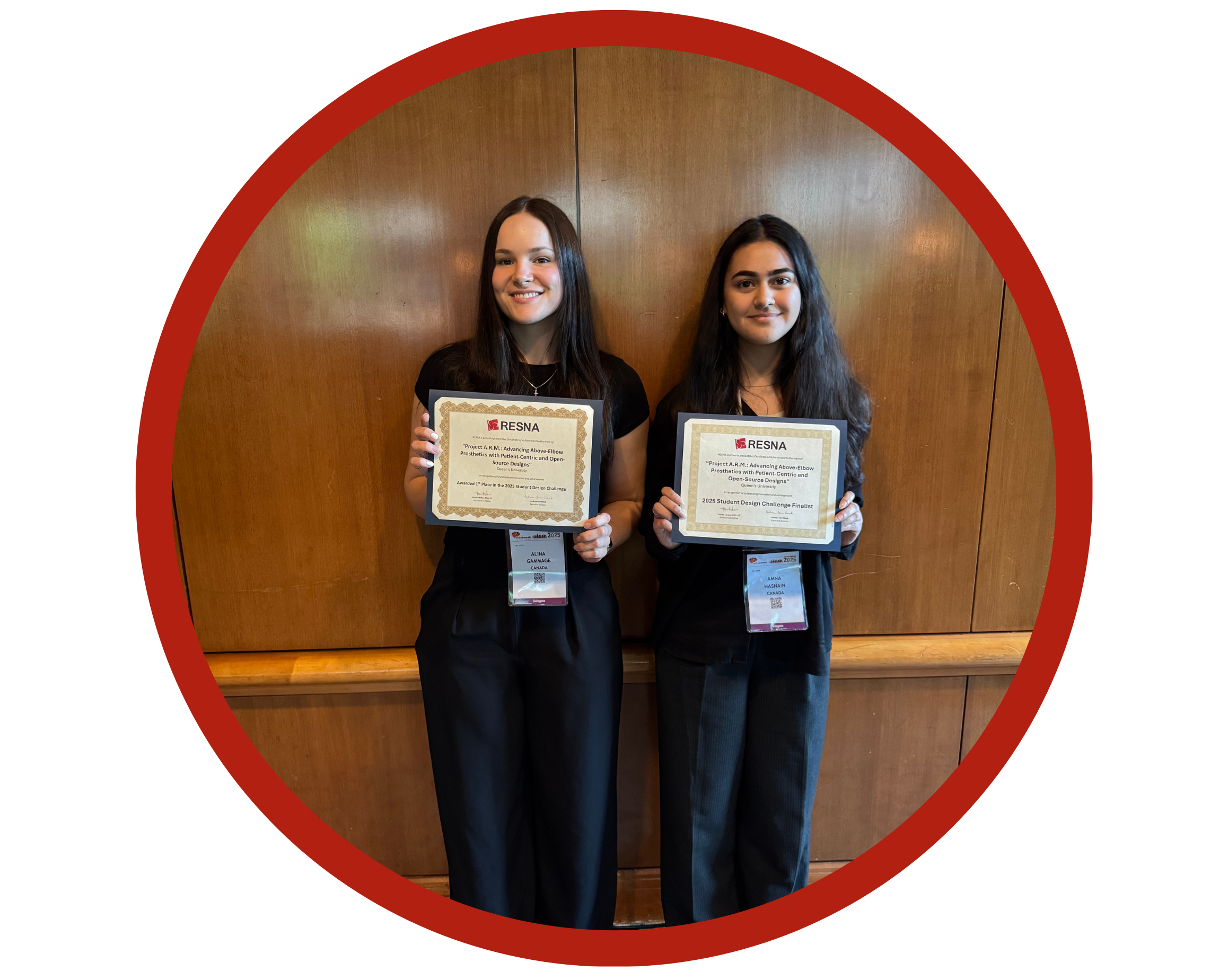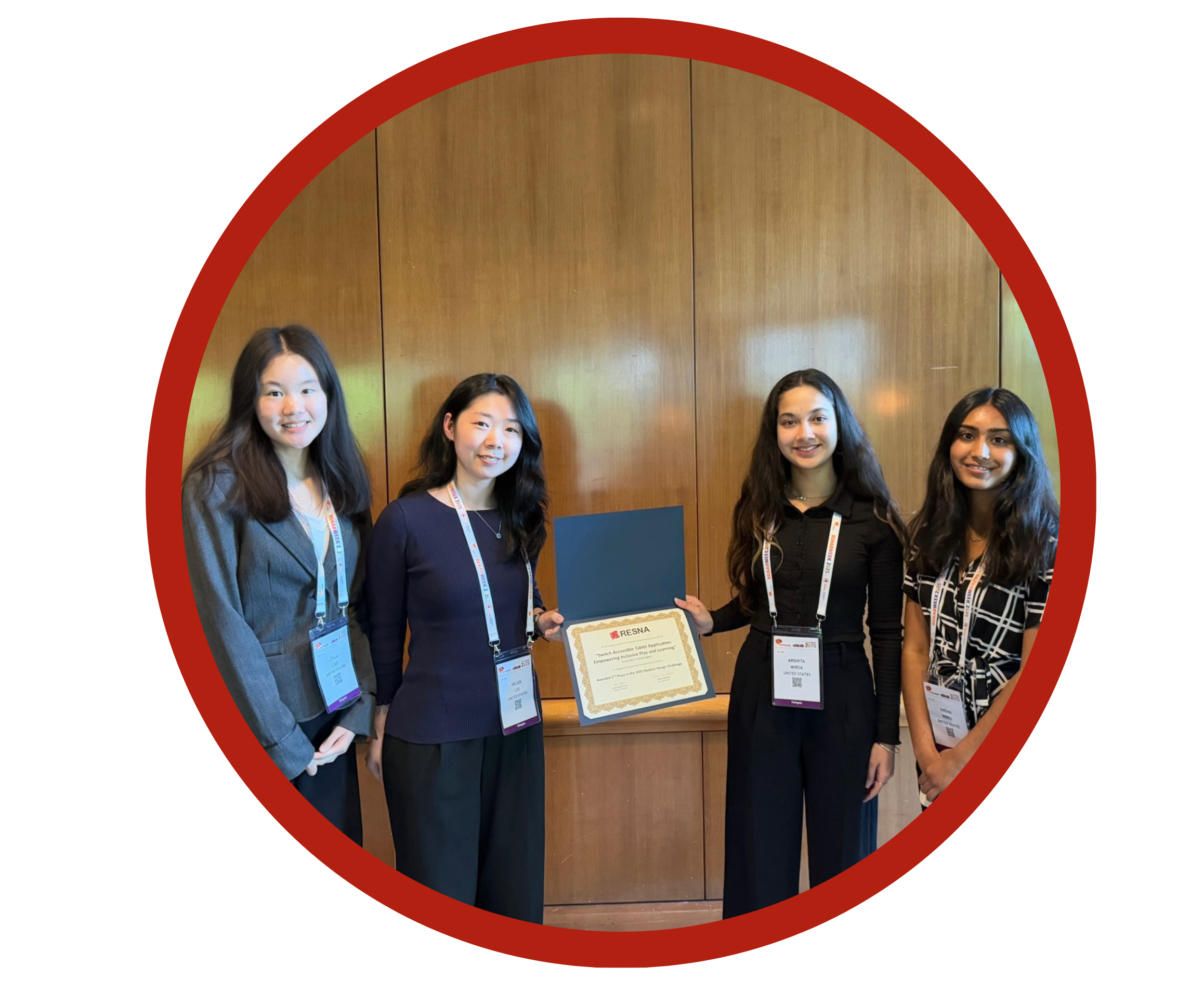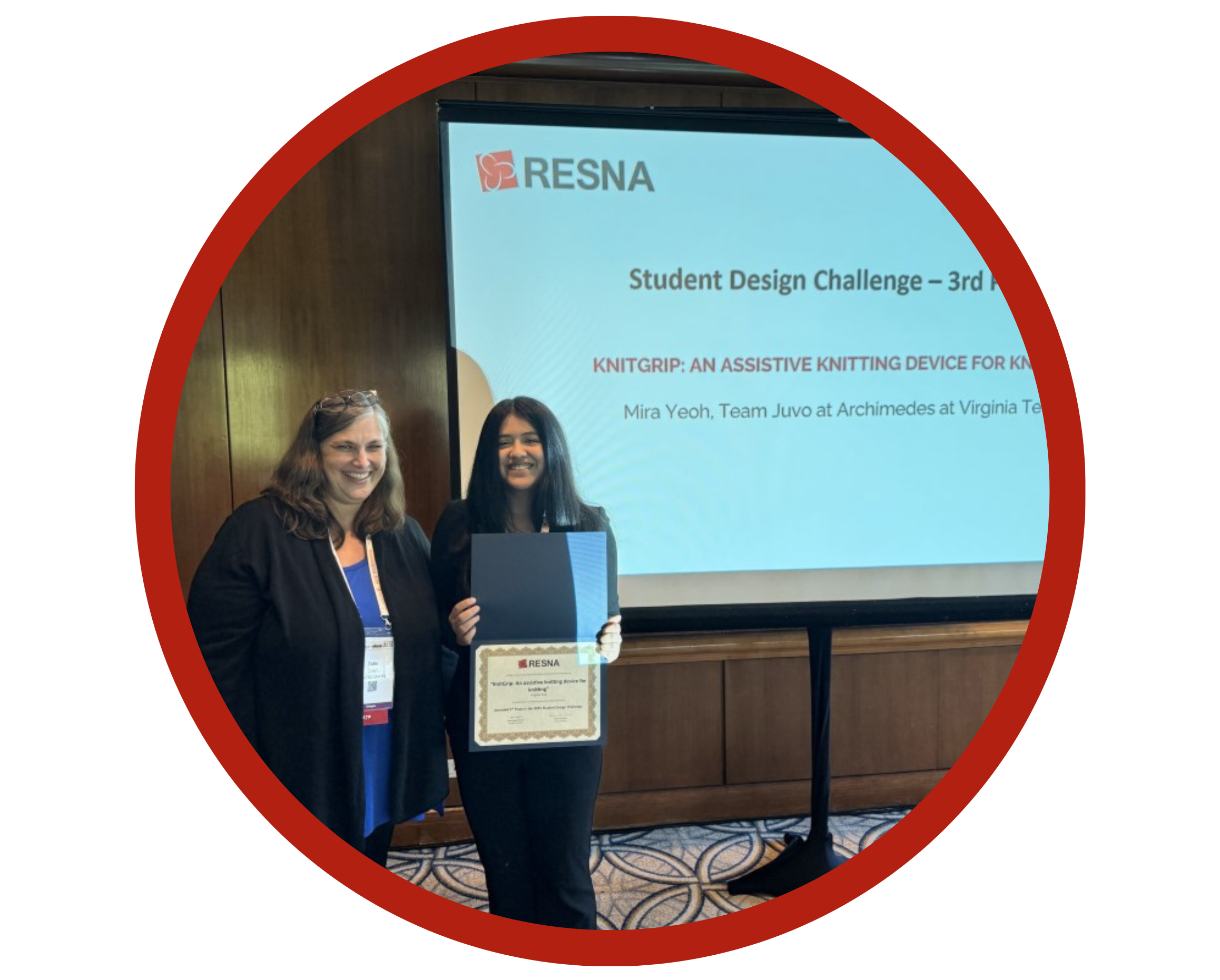The Student Design Challege was another success at RESNA 2025 held in conjuction with RehabWeek 2025 Chicago!
What is the SDC? The SDC is an annual competition which provides undergraduate and masters-level students - representing disciplines including engineering; computer information science; architecture; and physical and occupational therapy - an opportunity to create, develop, and showcase assistive technology designs that help people with disabilities live more independent lives.
Entries are judged by a group of AT experts on originality, quality of design, and usefulness to persons with disabilities, and the top five SDC teams chosen as finalists have an opportunity to virtually present their design at both the Student Design Challenge and the Developers' Showcase. After presentations are complete, first, second, and third place rankings are awarded. These three teams are receive a monetary prize in addition to their complimentary RESNA student membership.
The first prize of $1,000 is supported by the Joey Wallace Educational Scholarship Fund, in honor of Joey Wallace, an educator, mentor and beloved RESNA staff person. RESNA would like to thank the Joey Wallace Scholarship Fund for their continued support of and investment in the future generation of assistive technology professionals. Read more about the Joey Wallace Educational Scholarship Fund.
RESNA is pleased to announce the 2025 SDC Winners:
First Place: Project A.R.M.
Advancing Above-Elbow Prosthetics with Patient-Centric and Open-Source Designs

- Prize: $1000
- Institution: Queen's University
- Team: Lauren Windover (Queen's Biomedical Innovation Team); Emese Elkind (Queen's Biomedical Innovation Team); Alina Gammage (Queen's Biomedical Innovation Team); Noah Learned (Queen's Biomedical Innovation Team); Max Wolkoff (Queen's Biomedical Innovation Team); Kyla Wisener (Queen's Biomedical Innovation Team); Cole McCauley (Queen's Biomedical Innovation Team)
- Abstract: The Burmese healthcare system is critically strained, worsened by the 2021 coup, leaving thousands of refugees without medical care. Myanmar has the highest global rate of landmine casualties, with over 1,000 victims in 2023. Many require prosthetics, yet above-elbow options remain scarce and costly. Since 2019, the Burma Children Medical Fund (BCMF) in Mae Sot, Thailand, has provided low-cost, 3D-printed prosthetics, but only for below-elbow amputations. Project A.R.M. (Assistive Reach Mechanism), led by Queen’s Biomedical Innovation Team (QBiT), fills this gap with an open-source, patient-centric above-elbow prosthetic. It integrates a modified Kwawu Arm 2.0 forearm with a newly designed shoulder joint. A body-powered control system enables elbow movement and grasping via shoulder input. Fabricated from low-cost PLA using BCMF’s 3D printing capabilities, the prosthetic supports local production, easy maintenance, and patient adaptability.
Second Place: Switch-Accessible Tablet Application
Empowering Inclusive Play and Learning

- Prize: $750
- Institution: University of Washington
- Team: James Tran (University of Washington); Mishti Dhawan (University of Washington); Arshita Misra (University of Washington); Helen Liu (University of Washington); Sneha Birru (University of Washington); Ella Cao (University of Washington)
- Abstract: This project addresses the lack of accessible and engaging tools for children with disabilities, focusing on inclusive play to support motor and cognitive development. Many children miss out on play due to limited access to adaptive toys, and the current digital game market lacks affordable, switch-accessible options. In collaboration with educators and occupational therapists, we designed a switch-accessible tablet app featuring games that promote cause-and-effect learning, critical thinking, discovery, and creativity. The app offers sensory feedback and group play options, accommodating diverse learning preferences and abilities, which helps foster a sense of achievement and social interaction in both independent and collaborative play. The significance of this project lies in its potential to provide children with disabilities an affordable, scalable way to engage in meaningful play experiences, promoting inclusion and learning in a way that is impactful and accessible.
Third Place: KnitGrip
An Assistive Knitting Device for Knitting

- Prize: $250
- Institution: Virginia Tech
- Team: Mira Yeoh (Team Juvo at Archimedes at Virginia Tech), Dianne Barahona Bonilla (Team Juvo at Archimedes at Virginia Tech), Lily Quach (Team Juvo at Archimedes at Virginia Tech), Ryan Williams (Team Juvo at Archimedes at Virginia Tech), Braxton McDaniel (Team Juvo at Archimedes at Virginia Tech), Alexis Hamilton (Team Juvo at Archimedes at Virginia Tech), Micah Wissman (Team Juvo at Archimedes at Virginia Tech), Delara Bahrambeigui (Team Juvo at Archimedes at Virginia Tech)
- Abstract: Arthritis has become one of the leading inflammatory diseases amongst American adults, significantly impacting the performance of everyday tasks by impairing fine motor movements. This makes it difficult for patients to pursue creative activities that require precise movement and grip strength, such as knitting. To manage impaired movement, knitters have the option of splinting to stabilize the fingers and reduce pain, with finger splints being customized by the patient. However, this is not a viable option for low-income knitters, who may turn to alternatives such as pain medication. Other than splinting, patients have the option of wearing compression gloves, which help ease the pain in the hand by applying pressure, however, its effectiveness can vary depending on the user and the glove itself. This project focuses on the development of a 3D-printed finger splint combined with a compression glove specifically for adult knitters with arthritis that maximizes comfort for the user.